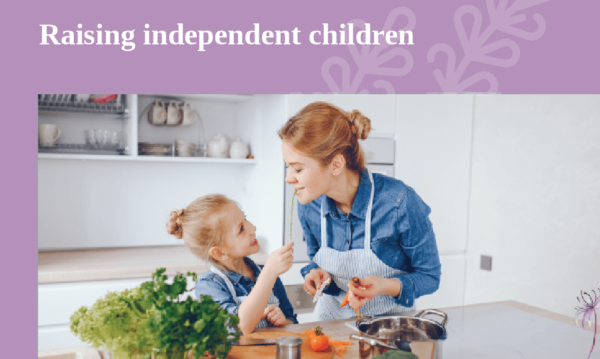One phenomenon that has been observed in recent years and has intensified during the years of the economic crisis is that young people don’t “leave” their homes and become independent. They rest because their parents continue to provide them with the necessary and thus extend their studies, do not go out on the labor market, and delay creating their own family. The reasons for this phenomenon’s existence are economical and based on the generally overprotective behavior of parents towards their children. In general, most of today’s children are remarkably “well-behaved” and attached to caregivers and find it difficult to become independent of them.
What is the cause of this situation?
· This situation starts primarily from the parents’ overprotective behavior towards their child; usually unwittingly, the parents try to raise it in as calm an environment as they can, remote from the risks surrounding it. This tactic is not wrong, but the excesses observed in its application are also those that do not act positively on the (regular) development.
· Moreover, they often do not attribute to him the responsibilities for his behavior; they always correct his mistakes; they “regret” him and continuously want to facilitate it. Thus, although parents want their child to become dynamic and able to deal with the problems presented to him, they usually behave in a counterproductive way, ultimately preventing their child from spreading his wings and growing smoothly.
· The child can become irresponsible and unable to defend himself when the parents justify or tolerate his behavior, lie to cover it up, repeatedly let him avoid the consequences of his actions, or do not entrust him with the house’s work.
· Many times, they let it enjoy some “privileges” while not completing all its obligations.
· They often do not act as role models of responsible and honest behavior – that is, they are not always consistent with their obligations and promises.
How will we raise children independently and autonomously who have confidence in themselves and their potential?
· For the child to learn to be independent, it is suitable for parents to leave it free to make his choices, make his mistakes and learn from them, so that, growing up, he can solve the problems and complex situations that may arise in his life.
· It’s crucial to talk to him honestly, support him, respect his choices, and trust his ability to make decisions. As you become more experienced, you can present to him the possible positive and negative consequences of his choices without criticizing them. You can tell him examples from your own life about how your choice turned out to be right or wrong, how you thought, how you decided, and how it helped you avoid future mistakes.
· It is essential to let your children experiment and gain the experience of wrong choices. Only in this way will he learn and begin to take responsibility for the consequences of his actions. Teach him the truth and honesty to be himself and not use false excuses to cover up.
· Give him initiatives and encourage him to explore the “outside” world. Your discreet physical presence is essential for its safety, but you do not need to run immediately to take it in your arms with the slightest blow or problem that occurs. If he falls, he’ll learn to get up and keep going, and you’ll reward him for his effort. Thus, he will learn to cope with misfortunes and not to be disappointed but to try and try again until he succeeds.
· You have to be role models for your children yourself, without continually telling them what to do. When you point out some good behaviors to them, but you do not apply them in your daily life, then the child will not pay attention to what you say. So if you want to be responsible and independent, be consistent in your behavior and keep your promises.
· Finally, to “liberate” your child, it is good to consider your feelings (e.g., insecurity, fear, anxiety) when this shows signs of independence and to deal with them without getting involved in the child’s development.
As parents, therefore, you are always invited to offer the child opportunities to gain self-confidence, to become responsible and independent in the safe environment of family and childhood. Thus, you prepare it so that, growing up, it develops into an autonomous and capable member of society with all the necessary resources to become a happy adult.


